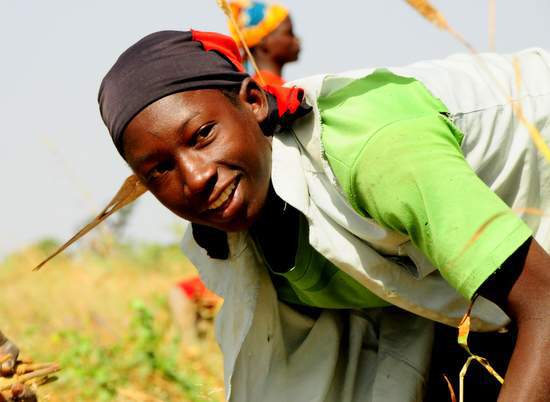Agribusiness is the field I find most interesting, exciting, and satisfying. I I have worked diligently to increase my understanding and mastery of this field. I want to help society find answers for serious problems like hunger, food insecurity, poverty and socio-economic development. I want to set a good example for my community and for young people to show that we can become our own bosses, enjoy rewarding careers, and build our economy, if we fully invest in what we have.
Belonging to the family of farmers, I had an innate interest in agriculture and for that reason I did my undergraduate study in agricultural economics and agribusiness. I am proud to say that I graduated with the first grade in my class. During my undergraduate career, I gained knowledge and experience in the classroom, and in practice. I have since established a company, “NICE VISION Ltd”, that is founded on my innovative, entrepreneurial and passionate spirit and approach to agribusiness and economic development for poverty reduction. I believe that agribusiness can provide me with a rewarding career that no other profession can provide.
In recent years, many innovations have improved the efficiency of the agri-food system. Agriculture innovation systems are being endorsed to formulate and analyze rural and agricultural development policies, programs and projects. Agribusiness incubators have become an important aspect of this innovation system and have proven critical to the survival of early-stage enterprises.
Youth engagement in agribusiness as “a network of organizations, enterprises and individuals focused on bringing new products, new processes and new forms of organization into economic use, together with the institutions and policies that affect their behaviour and performance. The innovation systems concept embraces not only the science suppliers but all the actors involved in innovation. It extends beyond the creation of knowledge to encompass the factors affecting demand for and use of knowledge in novel and useful ways.”
Agribusiness incubation programmes could contribute to creating economic opportunities, jobs and to alleviating poverty for young people in Africa. In order to effectively chart a pathway for Africa’s sustainable transformation, agribusiness incubation commitments to youth are captured in the document, Africa Accelerated Agricultural Growth and Transformation Goals to be achieved by 2025 (3AGTGs 2025). Thus, agricultural transformation programmes should be directed towards enhancing the access of women and young people to input and product markets by adopting effective strategies for creating and linking farmers with markets. One of the most feasible ways of achieving this would be through the development of the agricultural value chain.
Agribusiness presents tremendous opportunities for economic growth and youth employment in Africa. Given that the majority of Africans work in agriculture, an increase in farm productivity directly increases rural incomes and livelihoods. A burgeoning agribusiness sector also boosts the rest of the economy by providing affordable food, raw materials and a greater demand for processing and service industries.
Strengthening the agribusiness sector will amplify these effects by creating employment and entrepreneurial opportunities in rural and urban areas and by contributing to the growth of micro- and small enterprises though the establishment of market linkages. These employment and entrepreneurship opportunities can help absorb the surplus youth labour force in rural Africa where 70 percent of the continent’s youth live. Targeted, localized agribusiness development will also benefit smallholder farmers and their organizations through greater access to and knowledge of markets.
Growth-oriented agribusiness development offers a pathway out of poverty for rural Africa. A shift in direction that is both critical and necessary.
Blogpost by Jean Wilson Ndoruhirwe, wndoru(at)gmail.com, #AASW7 social reporter.
This post represents the author’s views only.
Picture courtesy P.Casier/CCAFS
This post represents the author’s views only.
Picture courtesy P.Casier/CCAFS

No comments:
Post a Comment